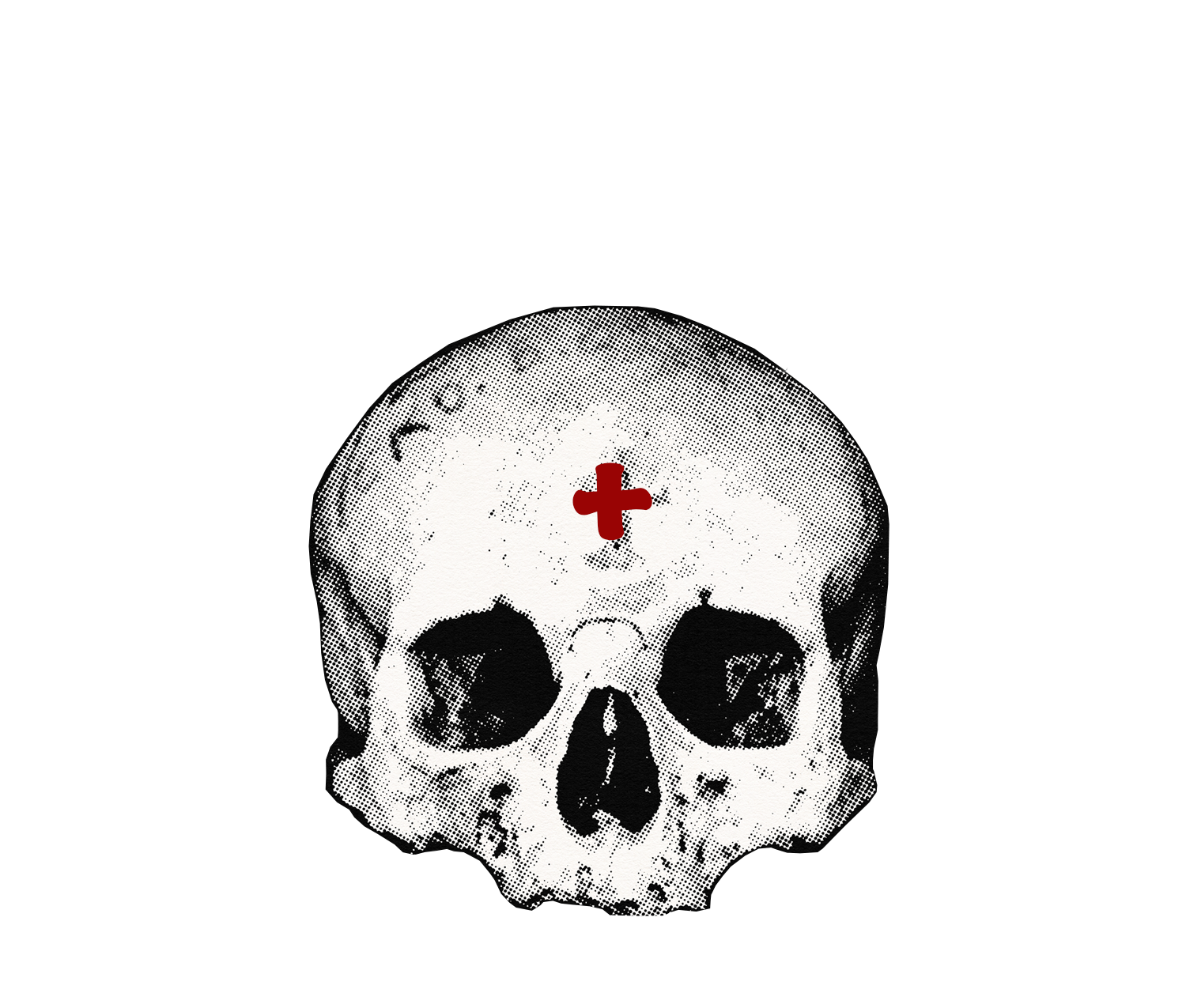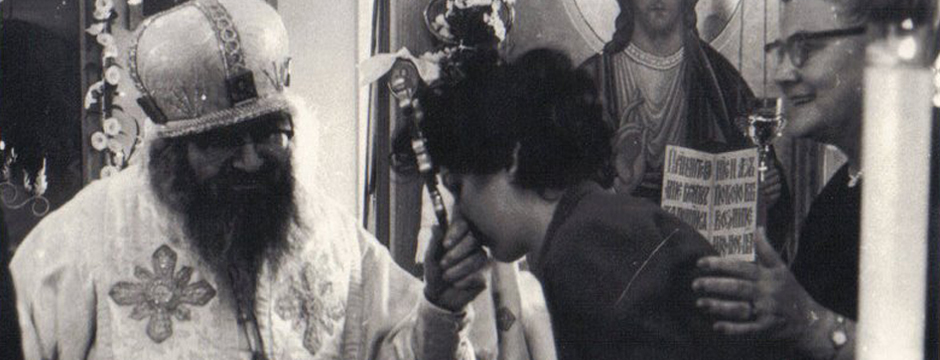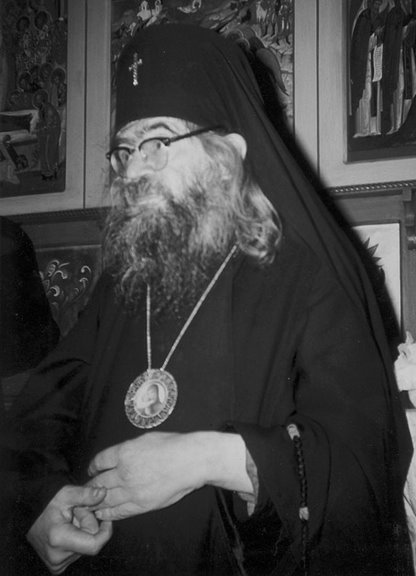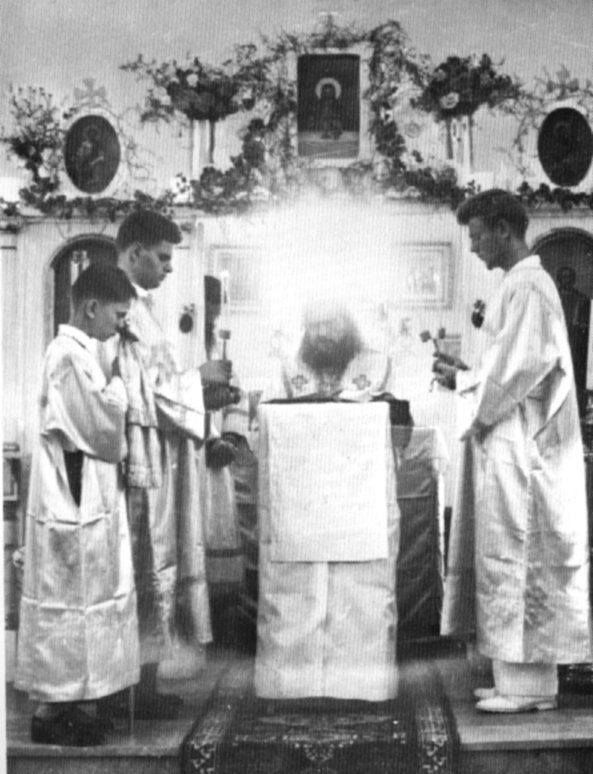By an Orthodox Subdeacon
From Issue 16
This article was written by a subdeacon who had the blessing of serving with Saint John as a child as well as having the Saint as a family friend and mentor. These are his reflections, looking back at the greatest things Saint John revealed to him about the spiritual life.
I look down from my perch in the choir loft, the cathedral is spread before me like a map. From the chandeliers above to the lit candles, everything is a sea of light. People still returning from the Cross Procession, candles in hand, only add to the radiance. With the start of the Orthros Service, the choir now sings what must be some of the most beautiful hymns in Christendom.
The air, too is permeated with the smells of the season. From the sweetness of the rare Czar’s rose incense to the exotic gardenia, nothing is spared. After all, we have just spent the last 40 days preparing ourselves for this night. And although known by many names, to the Russian it is simply- The Night. This is the Pascha Service in the Orthodox Church.
With so much activity at this moment, it is hard to notice the small figure almost floating among the crowds of people; incense billowing from his censer; calling out “Christ is Risen” (in Russian, of course) to everyone in ear-shot. This is His Grace John Maximovitch, (previously) Bishop of Shanghai, China and now of San Francisco, California, USA. A living wonderworker as through his prayers miracles occurred. But to us, his spiritual children, he is simply Vladika John.
From my vantagepoint, I am mesmerized by the events unfolding below. I’m still a bit too young to participate as altar boy, this will come later, I take little notice right now. Besides, tomorrow I will serve when Vladika comes to dine at our table. I will join everyone outside to meet his arrival (A Russian tradition). It will be my job, as his server, to escort him into the dining room where he will offer a Moleben (prayer service for the living). I will now be his ‘altar’ boy. And let me point out that this Moleben was not something real short.
Vladika, to the chagrin of a lot of people, NEVER liked cutting corners. So, we would do the full Moleben with incense (he brought), Gospel reading and all. And as his ‘altar’ server, his only ‘altar’ server I might add, I saw no reason to rush through or cut out anything either.
Visits to the house by Vladika were festive, they fascinated me. But, they were not seen by anyone as extraordinary. After all, he was a friend of the family all the way back to Shanghai. And as I grew older, I heard his views, as many people did on various subjects discussed at the table. Later, he would teach (as guest lecturer) at our Russian school. Eventually, I would finally have the opportunity to serve with him at the Altar.
This is the slice of my life I want to share with you. I don’t want to go over things already in books (well, maybe I should as they’re probably better written.) Certainly, the miracles done by Our Lord through him were really something, as was his prayer rule and compassion. But right now I want to share with you how he taught us to pray.
Before even beginning to look at prayer techniques, one must understand Vladika John’s reasoning behind prayer itself. He repeatedly affirmed the “veil” separating us from the divine is very frail and can be breached. And although this doesn’t happen often enough, or by our own will, when it does it is worth all the effort and then some. Also, he taught that the Holy Spirit is “waiting” for us to make this effort and actually helps us along. It is only when we choose not to that God backs away. Can we blame Him? After all He would then be doing it for us. And, with human nature such as it is we could never truly appreciate it. In the end, I began to see that maybe it is not God’s problem at all. Maybe it is we who need to feel like we worked for it?
He also stressed that this effort on our part must be sincere. We must also be honest. I think this is why St. John loved children so much. Maybe the child hasn’t pre-judged things yet. Maybe only a child can be genuinely honest with himself and thereby with God?
The first thing I noticed that he would do is isolate himself from the world when preparing to pray. Just prior, say to Liturgy; he would make sure that everything was calm. When speaking to others, especially clergy, he would emphasize what is about to take place and the necessity for the right atmosphere and focus. I think that in public areas he closed his eyes in order to accomplish this detachment from extraneous activity. I’ve heard some say that he slept. But I don’t buy it 100%, as St. John knew where he was in the services and what he needed to do. I do know 100% that when I’ve fallen asleep in class or at meetings, I didn’t have a clue where I even was when I woke up. And I’m an accomplished class-sleeper.
Next, he would never hurry during prayer. Think about it. Who really would even want to hurry when speaking with God? A good example here is how we respond to a friend who is in a big hurry. Don’t we try not to burden him but let him move on, so to speak? How much more does Our Lord who loves us so much do the same. And in the case of St. John, this created problems. We were all on ‘earth’ time, especially after the watch became affordable.
Have you ever watched a cat lie in wait for its prey? It doesn’t matter whether you were watching a lion on (hopefully) TV or a kitten stalking a ball on a string. There’s always a lot of waiting. A very patient waiting with all attention focused on the objective. The opportunity to grasp comes only after the prey has come to the cat. Young kittens make especially good examples here, too. Notice how fast they lose their attention? Not trained in the art, they go blundering at precisely the wrong moment. By then the cricket has vanished and the kitten is left with frustration and a lesson, if he chooses to learn it. In other words, the kitten hasn’t mastered the necessary discipline.
The same analogy may be made also with regards to St. John and prayer. I loved serving with him because of the, let’s say, prayerful atmosphere he would create prior to the service. Then, when the service began, I saw how he would focus (like the disciplined cat) on the words of the service as it proceeded. Waiting. Letting each piece come to him. Experiencing the Holy Spirit’s direction through our mother Church’s celebration. Years later, I found out that this was also how St. John of Kronstadt taught his monks. It is for this, and other reasons, that I now have come to the belief that St. John of Shanghai was from the school of St. Paisius. And we must not forget that Vladika John was an experienced teacher of monks in his own right prior to his arrival in Shanghai. For me, all this made for some really meaningful services. There are some great corollary lessons here on Vladika’s compassion and personal prayer life, but they must wait for another day.
I think this experience must have meant a lot to Vladika, as I never saw him leave the church after services without first saying thank you in the form of the Post Communion Prayers. However, unlike the lone leper who returned, from the group of lepers to thank Our Lord for cleansing, St. John made sure that all of us servers stayed to say thank you as well.
In the classroom, during lectures, I remember St. John telling us that the Holy Spirit not only waits for us to communicate with God, but to actually begin developing a relationship together.
Maybe the tragedy of St. John of Shanghai’s persecutions could ultimately rest in our lack of sincere desire or laziness or ? Which has kept us procrastinating; outside Christ’s bridal chamber; never experiencing even a glimpse of that relationship with the Holy Spirit of which he trumpeted to all around him. A relationship that is so real and dynamic that after this material world has finally ended, as it will for each of us, that loving relationship will live on into eternity itself.




